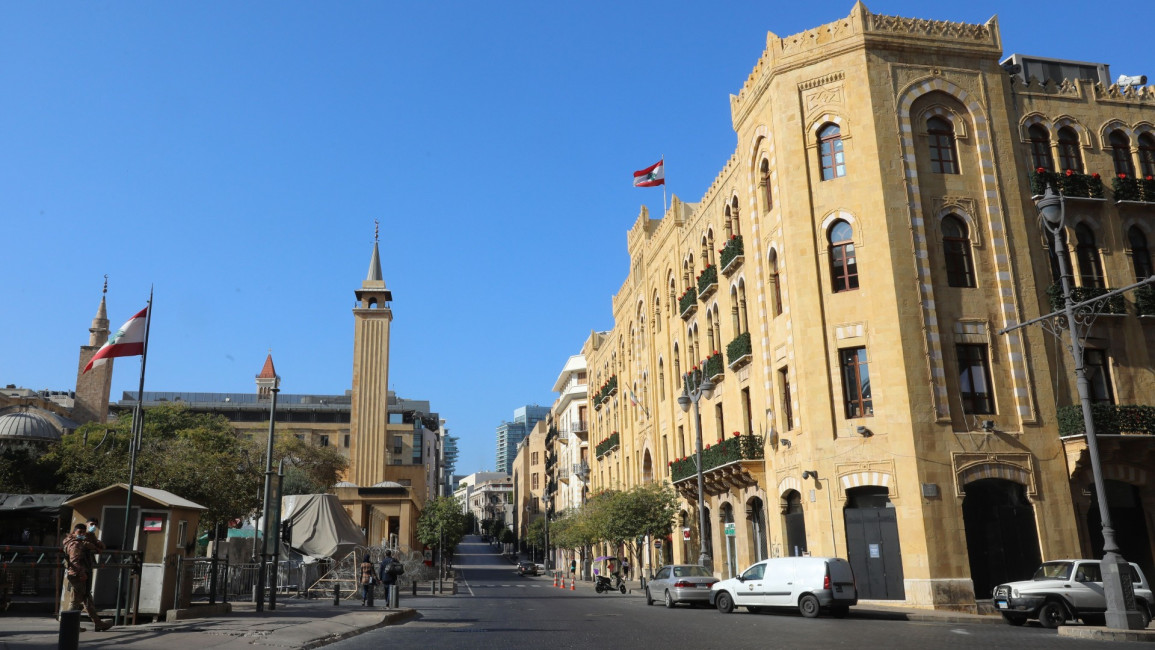Lebanon considers tighter lockdown amid coronavirus surge
Following a new post-holiday surge in infections, the Lebanese government imposed a nationwide lockdown and a night-time curfew.
Lebanon's handling of the virus surge amid a deepening economic crisis has been under scrutiny, with many saying hesitant policies have failed to contain it.
Despite a rise in infections, the government relaxed restrictions ahead of Christmas and New Year's celebrations, hoping to boost a crumbling local economy. Bars and nightclubs, which had been ordered shut for months, were allowed to open.
Penalties against big holiday gatherings and parties were not evenly and strictly imposed. On Sunday, a soccer match was allowed to take place in the northern Tripoli province with a crowd of supporters.
Doctors and experts say the extent of Covid-19's spread in Lebanon is yet to be felt, predicting numbers will skyrocket in the coming days, overwhelming health facilities in the country of nearly 6 million.
Daily infection rates have hovered above 3,000, hitting an all-time high of over 5,000 last week.
MPs and officials have called on the government to consider a 24-hour lockdown without exemptions.
There have been calls for the Beirut airport to be shut. Some 80,000 Lebanese expats had returned to the country during the holidays, but doctors say the transmission remains mainly among residents.
Read also: Medics warn of coronavirus 'catastrophe' in Lebanon
Twitter Post
|
Panic buying
On Monday, panic buyers swarmed supermarkets after reports the government planned to also order them shut in the tightened lockdown.
Long lines formed outside chain supermarkets, sparking fear the crowds could further spread the virus.
Merna Jumaa left a packed supermarket in eastern Beirut pushing a cart full of groceries but with no bread.
"We came to get bread. There was already not a single piece of bread left," she told AP, walking away with her mother.
Ahead of a ministerial meeting to consider new measures, Caretaker Prime Minister Hassan Diab blamed careless behaviour for the spread, saying many Lebanese still consider the virus a hoax and are not taking it seriously.
"We have entered a very critical zone in terms of the coronavirus spread or at a minimum, we are at the gates of that zone," Diab said.
As of Sunday, the World Health Organization said 81.7 percent of Lebanon's hospital beds were occupied and the intensive-care-unit bed occupancy had reached 91.4 percent, with the highest in Beirut.
Some 2,295 health care workers had been infected by 10 January, up from 2,015 last week.
Since February, Lebanon has recorded more than 219,000 infections and 1,606 deaths.
Hospitals have appealed to the government to turn all health facilities into treating coronavirus patients, saying all 15,000 hospital beds are needed to meet the new surge.
Jad Chaaban, a Lebanese economist and political activist, tweeted that Lebanon "is dying" and called it "another chapter" of the "criminal incompetence" of the authorities.
Lebanon's political class was facing a wave of anti-government protests before the virus outbreak.
The protesters blamed the long-serving political elite for mis-managing the crisis. Then, a massive explosion last August in Beirut's port killed over 200 people and injured thousands.
The blast, caused by the ignition of explosive chemicals stored there for years, has been blamed on gross negligence.
Agencies contributed to this report.
Follow us on Facebook, Twitter and Instagram to stay connected



